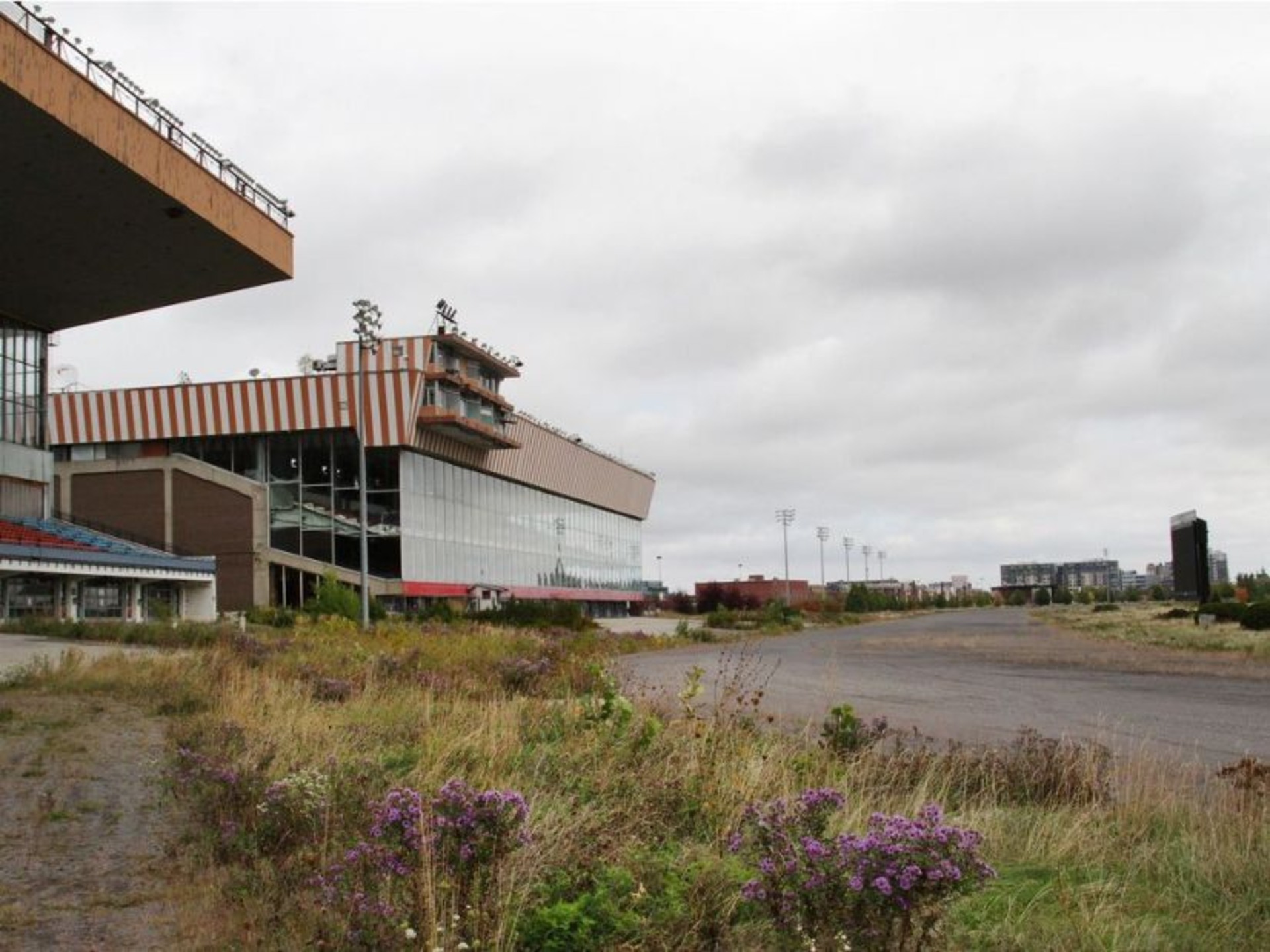Daunting challenges ahead for development of Blue Bonnets site
26 Jan 2020
Expectations for the future eco-neighbourhood on the former Blue Bonnets raceway are sky-high.
Some 5,000 to 6,000 brand-new units, accessible to families, people on low incomes and buyers on a budget. Plenty of parks, playgrounds, community gardens, recreational facilities, community services and local stores. Bike paths, pedestrian walkways and convenient access to public transit.
But as Montreal’s public consultation bureau holds an 8 1/2-hour citizens’ forum on the future of the site at Décarie Blvd. and Jean-Talon St. Thursday, a leading expert on urban development and housing warns that while the potential is vast, the obstacles are daunting.
“I’m a little worried because I think the city will find itself in a situation where the expectations are very high,” said Annick Germain, a researcher, author and professor of urban studies at the Institut national de la recherche scientifique (INRS).
As owner of the 75-hectare site — the equivalent of 66 soccer fields — the city theoretically has carte blanche to fulfill its ambitious vision for an inclusive, ecological neighbourhood, she said. But external factors like Montreal’s dependence on upper levels of government for funding, enormous infrastructure costs, insufficient transit options, a site cut off from its surroundings and the impacts of the nearby Royalmount project will all pose enormous challenges, Germain said.
“Normally, this is the place where the city should be able to do just what it wants. But I suspect that is not what will happen,” she said.
Construction of the Royalmount megamall at the intersection of Highways 40 and 15 could jeopardize the schedule for the Hippodrome project, Germain said.
“I don’t think you can develop two enormous sites at the same time. Realistically, one is going to delay the other,” she said.
The first phase of construction on the Hippodrome site will stretch from 2023 to 2030, said Catherine Cadotte, a spokesperson for the city administration.
Germain also expressed concern that Montreal’s focus on creating a car-free eco-neighbourhood could outweigh what she said should be the top priority: providing social and affordable housing for families.
“If there’s one place where you can build family, social and affordable housing, this is it,” she said.
It has been about a decade since any major investments in mixed-income housing developments, like the Tannerie project at de Courcelle and St-Jacques Sts. in St-Henri and the Cité de l’Acadie project in the Ahuntsic-Cartierville borough, she noted.
Surrounded on two sides by train tracks, the Blue Bonnets site poses “an enormous challenge in terms of design,” Germain said.
“You can imagine it being a nice neighbourhood, but it can’t just be an enclave in the middle of a hostile environment,” she said.
Darby MacDonald, a community organizer for Project Genesis, said the community organization is calling for at least half of the proposed 5,000 units to be reserved for social housing.
Germain cautioned that it would be a mistake to have too high a proportion of low-income residents, saying public housing projects around the world have demonstrated that segregating the poor results in social problems.
But MacDonald said low-income residents of Côte-des-Neiges are already concentrated together.
“Without the subsidized housing, really this development won’t be accessible to the community itself. The reality of Côte-des-Neiges is that 4,235 households pay 80 per cent or more of their monthly income to rent. That’s just not acceptable,” she said.
André Boisclair, president of the Urban Development Institute (UDI), said that as owner of the Hippodrome site, the city is now getting an idea of what it’s like to be in developers’ shoes.
“There’s no doubt that as long as the issues of infrastructure and mobility have not been resolved, it could be a long time before we see development on this site,” he said.
Thursday’s forum, organized by the Office de consultation publique de Montréal (OCPM), will run from 1 p.m. to 9:30 p.m. at Hotel Ruby Foo’s, 7655 Décarie Blvd. It will include panel discussions; kiosks by developers, the city and the Société de transport de Montréal (STM); presentations by experts from Montreal and abroad; and workshops on mobility and city planning.
